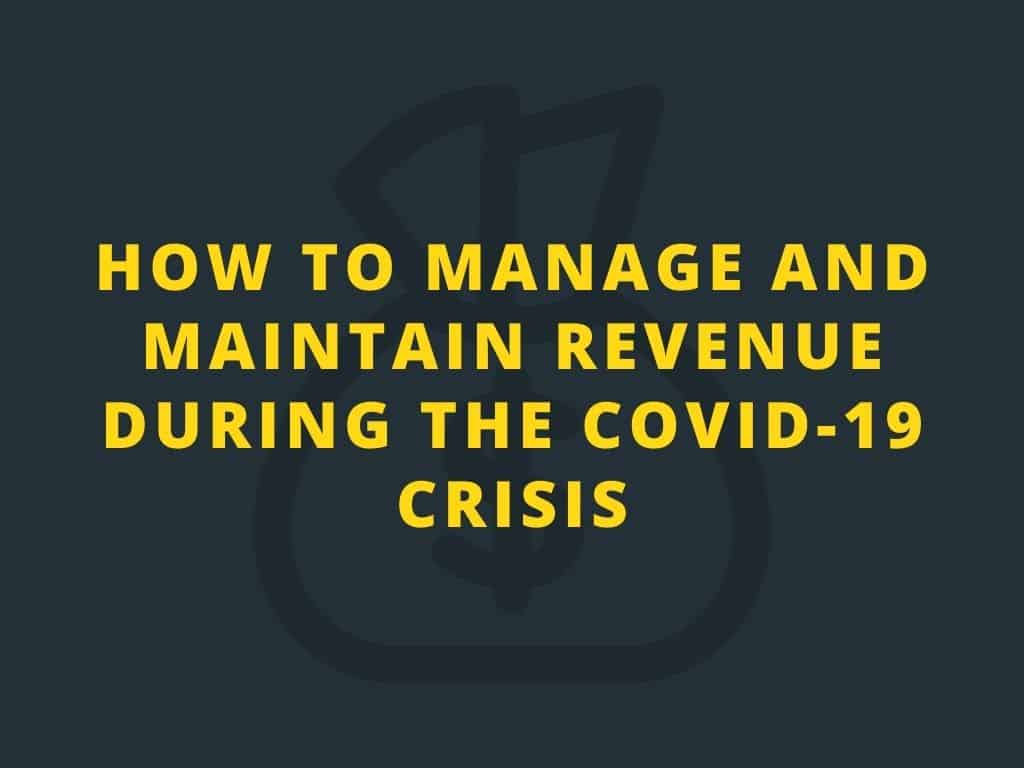by Patrick Hogan
Running a business is challenging enough as it is, but the ongoing COVID-19 crisis has definitely increased the difficulty level for small business owners. Not only has the pandemic affected day-to-day operations, but it has also introduced significant risks and threats to finances.
According to a recent PwC survey, financial impacts—including drawbacks regarding liquidity and capital resources—continue to be among the top pandemic-related concerns among business leaders. The uncertainty surrounding this public health crisis can be daunting: one wrong decision and your business might struggle to recover, if not completely fold.
It is, therefore, very important for small businesses to calibrate their strategies to ensure that they stay afloat during and after the pandemic. Comprehensive assessments and proper planning are key. From analyzing your finances to tapping into possible sources of capital, here are five concrete steps that you can take to protect your revenue in the wake of COVID-19.
1. Protect the health and safety of your team
Protecting your revenue during a pandemic begins with protecting yourself and your team from coronavirus. All business strategies will fall through if your and your team’s health is compromised in an unsafe environment.
You must then do everything in your power to ensure that everyone is safe and healthy. Some businesses are, of course, more vulnerable to the virus than others. Construction businesses, for example, are more prone to viral outbreaks due to the challenges in practicing social distancing on a work site.
There must then be clear health and safety protocols in your workplace and these protocols must be communicated to all the staff. Designate certain staff members as implementers to ensure that all safety measures are practiced.
In every decision you make, you should make health and safety the top priority in your business.
2. Assess and analyze your financial status
 Conducting a thorough review of your finances will help you build a strong strategy to weather this crisis. If you have a solid understanding of where your finances stand, you are more likely to make sound financial decisions.
Conducting a thorough review of your finances will help you build a strong strategy to weather this crisis. If you have a solid understanding of where your finances stand, you are more likely to make sound financial decisions.
An exhaustive review of your finances can involve calculating how much cash you have on hand, assessing the values of your assets, and projecting your expenses with best- and worst-case scenarios in mind.
When doing your review, also inspect your project timelines, identify budgetary items that you can cut, and analyze your relationships with your vendors and suppliers. You can look into the geographical locations of your suppliers, for example, and see which ones are in areas that are highly affected by the pandemic. Consider building a list of alternative suppliers if necessary.
Your analysis must be comprehensive, so try to leave no stones unturned.
3. Monitor policy changes, market projections, and other updates
These are uncertain times, so you must always be aware of everything that is going on, from new federal policies to relevant updates on government stimulus programs.
Being updated on current events and economic forecasts is very important. This way, you can take advantage of potential financial aid programs, and also be aware of how related industries are performing during the pandemic.
If, say, you run a business that frequently deals with wood suppliers, it might be important to know that the plywood market is projected to flourish despite the threat of economic recession. Knowing market projections like this is essential in building and adjusting your financial strategies.
You can also reach out to local and state governments so you can be informed about potential business closures and changes in “non-essential” designations. Try to establish communication lines with as many stakeholders as possible—having more information at hand can help you strategize better and plan ahead.
4. Look into potential sources of capital
 One of the biggest financial struggles of small businesses is getting access to capital, especially at a time when projects are scarce and the economy has only begun opening up. In mitigating this issue, knowing where to look for capital is vital.
One of the biggest financial struggles of small businesses is getting access to capital, especially at a time when projects are scarce and the economy has only begun opening up. In mitigating this issue, knowing where to look for capital is vital.
The US Small Business Administration (SBA) published a guide on loan resources for small businesses. The SBA offers a variety of capital assistance, from express loans to microloans. Every small business in the US should look into how they can take advantage of these programs.
Other than the SBA, private lenders can help augment your cash flow too. There are different financial lending options available depending on how much money you need and what you need it for. You can secure a bank loan, use your assets as leverage through asset-based lending, or sell your invoices via invoice factoring.
There are tons of resources available to secure capital, but it goes without saying that you should be diligent and responsible in handling the money to avoid further financial concerns.
5. Know your contract and payment rights
Protecting your revenue also requires understanding the contracts that you sign and knowing your rights as a business owner.
When you sign a contract, make sure that you understand its every clause and provision. Look for possible risks in case a subcontractor fails to deliver the required services, and see if there are any financial consequences if a delay occurs. Keep an eye out for these details as these are particularly important during a pandemic, when construction closures and material delivery delays may happen anytime. Before you sign any contract with a company you should double-check a company’s courier service business.
You should also be aware of your payment rights. In the construction industry, for instance, business owners are allowed to file a mechanics lien in case a payment dispute comes up. However, most states require that you file preliminary notices in order to preserve your option to claim a lien. Filing a mechanics lien is a legal right that comes in handy when a construction party is trying to recover payment from a delinquent client.
It must be said, however, that recording a mechanics lien requires following strict rules and regulations. You must know what these rules are to best protect your right to get paid for your hard work, especially at a time when every dollar counts.
Patrick Hogan is the CEO of Handle.com, where they build software that helps contractors, subcontractors, and material suppliers with late payments. Handle.com also provides funding for construction businesses in the form of invoice factoring, material supply trade credit, and mechanics lien purchasing.
